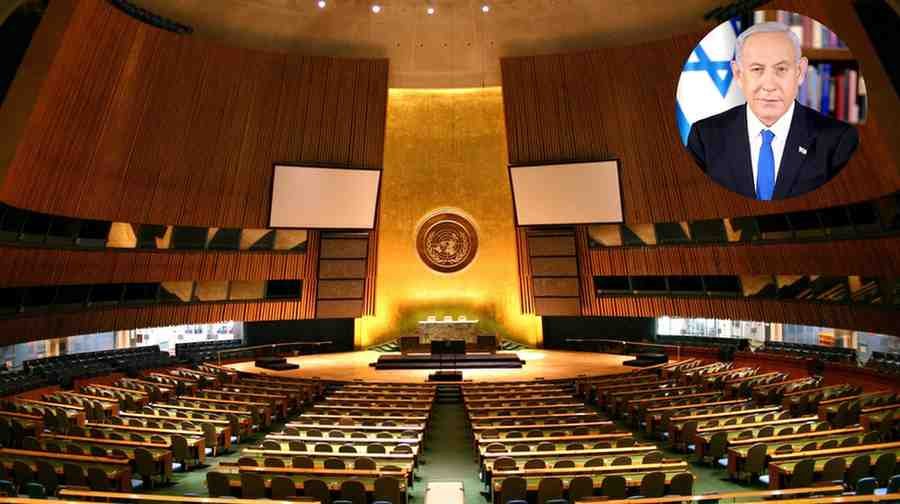The United Nations General Assembly (UNGA) witnessed a dramatic confrontation on September 26, 2025, when Israeli Prime Minister Benjamin Netanyahu delivered a hard-line address on Gaza. The speech, laced with defiance and urgency, sparked a cascade of walkouts, protests, and questions about international norms. Below is a closer look at what unfolded — and why the world is still reacting.
A Walkout Heard Round the World
As Netanyahu began, more than 100 diplomats from over 50 countries walked out.
The message was clear: his remarks crossed a line for many.
Walking out at the UN is a potent diplomatic gesture — not just silence, but symbolic disavowal. It signals profound rejection of the speaker’s message without uttering a word.
In the broader history of UN speeches, walkouts have served as protests against aggression, human rights violations, or violations of international norms. Last year, for instance, delegates left during Netanyahu’s address over Gaza and Lebanon tensions.
“Finish the Job” — A Line That Hit a Nerve
Netanyahu’s core message: Israel must “finish the job” in Gaza swiftly.
He framed this as a necessary step to eliminate Hamas, recover hostages, and dismantle the militant capability in the territory.
Critics say such rhetoric escalates the conflict, justifies continued bombardment, and ignores mounting civilian suffering and infrastructure collapse. Meanwhile, he dismissed recent recognitions of Palestine by Western nations as “insane.”
Broadcasting His Speech Into Gaza — A Tactical Shock
Perhaps the most audacious maneuver: Netanyahu’s team attempted to broadcast his UN address into Gaza. That included loudspeakers at the border and claims of hijacking phones to stream the speech.
Whether or not the broadcasts reached many inside remains uncertain, but the act itself raised alarm bells about media to warfare crossover. Using diplomatic or symbolic platforms to directly communicate with civilians in a conflict zone is rare and controversial.
Global Protests & Rising Calls for Accountability
Outside the UN hall, protests erupted. Demonstrators marched through New York calling to halt Israeli military operations and show solidarity with Gaza.
Simultaneously, diplomatic efforts were underway via the “Hague Group” — 34 countries pressing for enforceable actions, including sanctions on Israel.
Inside the hall, the walkouts reverberated. Hamas hailed them as proof of Israel’s “isolation” and characterization of Netanyahu’s speech as a denial of “genocide, forced displacement, and starvation.”
What This Means for UN Norms & Global Diplomacy
This drama matters far beyond the speech itself.
Erosion of diplomatic decency: Walkouts are not new — but when a large bloc departs during a major leader’s address, the institutional fabric of UN debate feels strained.
Weaponizing symbol and speech: Broadcasting into Gaza suggests a feedback loop between warfare and messaging.
Legal and moral pressure: With existing ICC arrest warrants, many see this moment as intensifying pressure to hold leaders accountable.
Divided global alliances: Western countries that recently recognized Palestine discovered that their former positions with Israel now carry greater diplomatic cost.
This UN confrontation didn’t just capture headlines — it exposed deeper fault lines in global diplomacy, the limits of speech in war, and the balancing act between power and legitimacy.

